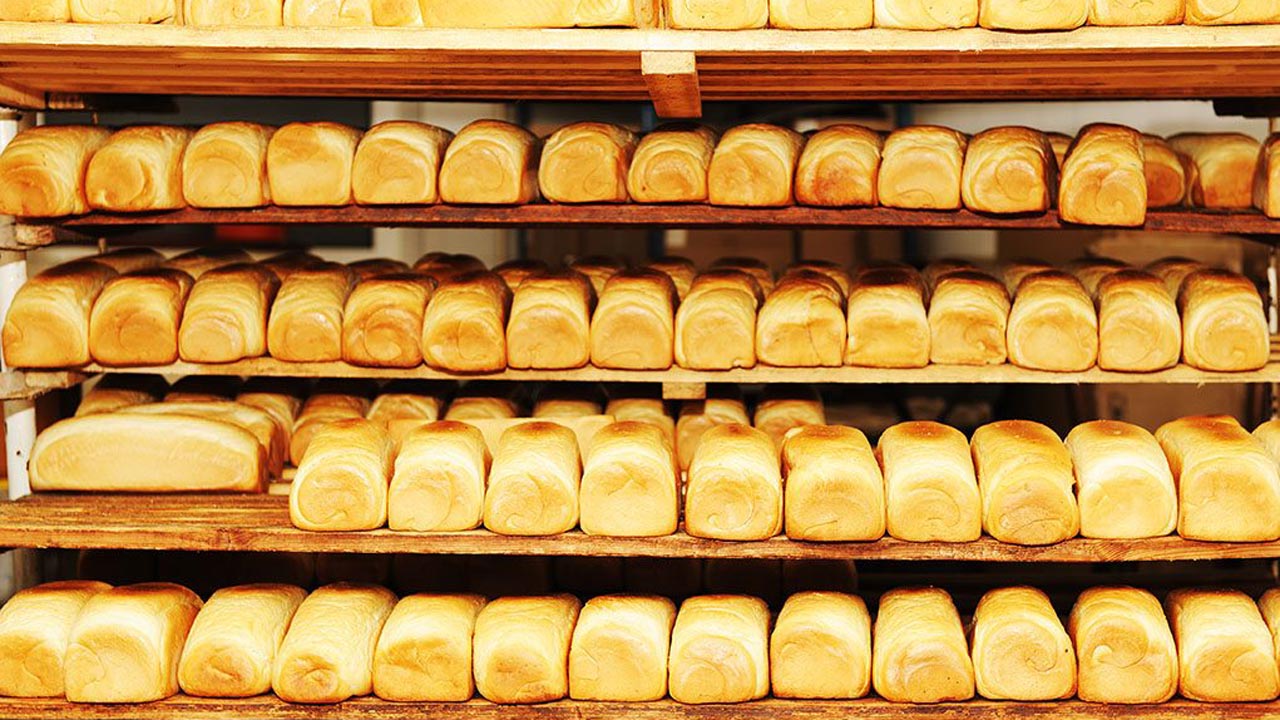Exploring the Flourishing Bread Industry in Nigeria: A Close Look at Wigmore Trading’s Role
Exploring the Flourishing Bread Industry in Nigeria: A Close Look at Wigmore Trading’s Role
Welcome to our blog post where we embark on a tantalizing journey into the heart of Nigeria’s bread industry, unraveling its secrets and highlighting the remarkable contributions of Wigmore Trading. Get ready to sink your teeth into fascinating insights as we delve deep into this flourishing world filled with aroma, innovation, and opportunity. From the humble origins to its current exponential growth, join us as we shine a spotlight on how Wigmore Trading has played a pivotal role in revolutionizing this beloved staple food. So grab a slice of curiosity and let’s savor every crumb together!
Introduction to the Bread Industry in Nigeria
The bread industry in Nigeria has experienced significant growth and success in recent years, making it a key player in the country’s economy. According to data from the International Trade Centre, Nigeria is one of the top ten largest importers of wheat flour in the world. This indicates a high demand for baked goods such as bread, pastries, and cakes.
Bread is a staple food in Nigeria, with an estimated consumption rate of 100 loaves per second by Nigerians. This high demand for bread can be attributed to several factors such as its affordability, convenience, and versatility. Bread is not only eaten as a standalone meal but also used as an ingredient in many Nigerian dishes.
The history of the bread industry in Nigeria can be traced back to colonial times when European settlers introduced modern baking techniques and equipment to the country. However, it was not until after independence that local bakeries began to spring up across major cities like Lagos, Abuja, and Kano.
Today, there are over 10 million small-scale bakeries scattered all over Nigeria producing different types of bread ranging from sliced white bread to whole grain varieties. These bakeries provide employment opportunities for thousands of Nigerians and contribute significantly to the country’s GDP.
One major challenge faced by the bread industry is access to quality raw materials such as wheat flour. Due to limited local production capacity, most bakery owners rely on imported wheat flour which can be quite expensive due to fluctuations in foreign exchange rates.
History of Wigmore Trading and their Role in the Industry
Wigmore Trading is a leading player in the bread industry in Nigeria and has played a significant role in its growth and development. The company was founded by Mr. James Wigmore in 1995, with the aim of providing high-quality baking ingredients to bakeries across Nigeria.
Over the years, Wigmore Trading has established itself as a trusted supplier of bakery equipment, raw materials, and other essential products for the bread-making process. With their commitment to quality and innovative approach, they have become one of the most reliable names in the industry.
The journey of Wigmore Trading began with humble beginnings when Mr. James Wigmore recognized a gap in the market for high-quality baking ingredients. He started by importing flour from Europe and distributing it to small-scale bakeries across Lagos state. Gradually, he expanded his product range to include yeast, sugar, butter, oils, flavorings, and other essential baking supplies.
With time, Wigmore Trading’s reputation for supplying top-notch products at competitive prices grew, resulting in an increase in demand for their services. This led the company to invest heavily in its infrastructure and expand its geographical reach beyond Lagos state to other regions of Nigeria.
One significant milestone for Wigmore Trading was their partnership with Lesaffre Group – a global leader in yeast production – which enabled them to become the primary distributor of Lesaffre’s products in West Africa.
Types of Bread Produced by Wigmore Trading
Wigmore Trading is one of the leading producers and distributors of bread in Nigeria. With a commitment to quality and innovation, they have managed to capture a significant share of the market and establish themselves as a trusted brand among consumers. The company offers a wide range of bread options, catering to different tastes and preferences. In this section, we will take a closer look at the various types of bread produced by Wigmore Trading.
1. Sliced Bread:
Sliced bread is perhaps the most commonly consumed type of bread in Nigeria. It is soft, fluffy, and perfect for making sandwiches or toast. Wigmore Trading offers sliced bread in different thicknesses to suit individual preferences.
2. Wheat Bread:
For health-conscious consumers, Wigmore Trading produces wheat bread that is made from whole grain flour. It contains all the essential nutrients found in whole grains such as fiber, vitamins, and minerals. This type of bread has gained popularity among those who are looking for healthier alternatives to traditional white bread.
3. Fruit Bread:
Fruit bread is another popular choice among Nigerian consumers due to its sweet taste and soft texture. Made with raisins or other dried fruits like apricots or cranberries, it can be enjoyed as a snack or dessert.
4. Wholemeal Brown Bread:
Wholemeal brown bread contains more bran than regular wheat-based flour which makes it higher in fiber content than white bread. This type of bread not only aids digestion but also helps with weight management.
Quality Standards and Certifications of Wigmore Trading’s Products
Wigmore Trading is committed to providing high-quality products to its customers in the bread industry in Nigeria. As a leading supplier of baking ingredients and equipment, Wigmore Trading understands the importance of meeting quality standards and obtaining certifications for its products.
Quality Standards:
All products offered by Wigmore Trading undergo strict quality control measures to ensure that they meet the highest standards. The company works closely with reputable suppliers from around the world who have established themselves as leaders in their respective fields. This ensures that only premium quality ingredients and equipment are supplied to customers.
In addition, Wigmore Trading has implemented its own internal quality management system that includes regular checks and audits at every stage of production. This includes inspecting incoming raw materials, monitoring production processes, and conducting final product inspections before shipping.
The company also stays up-to-date with international food safety regulations and regularly updates its procedures accordingly. This dedication to maintaining high-quality standards has earned Wigmore Trading a reputation for reliability and excellence among its customers.
Certifications:
Wigmore Trading’s commitment to quality is further demonstrated through various certifications obtained by the company. These certifications serve as a testament to the company’s adherence to international standards and best practices.
One of the most notable certifications acquired by Wigmore Trading is HACCP (Hazard Analysis Critical Control Point), which is an internationally recognized food safety management system. This certification ensures that all potential hazards during production are identified, controlled, and monitored effectively.
Impact on Local Economy and Employment Opportunities
The bread industry in Nigeria has experienced immense growth and success in recent years, becoming a major contributor to the country’s economy. With a growing population and increasing demand for affordable food products, bread production has become a lucrative business for many local entrepreneurs.
One of the key players in this thriving industry is Wigmore Trading, a leading supplier of bakery ingredients and equipment in Nigeria. Not only does Wigmore Trading play a crucial role in ensuring the quality and availability of essential baking materials, but it also has a significant impact on the local economy and employment opportunities.
Firstly, by providing high-quality ingredients at competitive prices, Wigmore Trading enables local bakeries to produce top-notch bread that is not only tasty but also affordable for consumers. This helps to stimulate demand for locally-made bread, boosting sales and revenue for small-scale bakers who are often struggling to compete with imported brands.
Moreover, Wigmore Trading sources its products from local suppliers whenever possible, supporting other businesses within the Nigerian economy. By creating partnerships with local farmers and manufacturers, Wigmore Trading contributes to the growth of various industries such as agriculture and packaging materials production.
Wigmore Trading’s operations also have a direct impact on employment opportunities in Nigeria. As one of the largest distributors of bakery equipment in the country, they employ numerous staff members across their warehouses and retail outlets. Additionally, their partnership with small-scale farmers provides job opportunities for individuals involved in agriculture.
Challenges Faced by the Bread Industry in Nigeria
The bread industry in Nigeria has seen significant growth and development in recent years, with an increasing demand for baked goods among the Nigerian population. However, despite this growth, the industry also faces several challenges that can hinder its progress and profitability. In this section, we will delve into some of the key challenges faced by the bread industry in Nigeria.
1. High Cost of Production:
One of the major challenges facing the bread industry in Nigeria is the high cost of production. This is primarily due to factors such as high import tariffs on raw materials, lack of infrastructure, and fluctuating exchange rates. As a result, many bakeries struggle to maintain competitive pricing for their products while still making a profit.
2. Inadequate Infrastructure:
The inadequate infrastructure in Nigeria poses a significant challenge to the bread industry’s operations. Poor transportation systems make it difficult for bakeries to distribute their products efficiently across different regions of the country. Additionally, frequent power outages and unreliable water supply can disrupt production processes and increase operational costs.
3. Lack of Skilled Labor:
Another major challenge faced by the bread industry in Nigeria is a shortage of skilled labor. The baking process requires specialized skills and knowledge that are not readily available or accessible to many bakeries. This results in a limited pool of skilled workers who can handle various aspects of bread production effectively.
Future Outlook for the Industry and Wigmore Trading’s Contribution
The bread industry in Nigeria has been steadily growing over the years and is expected to continue flourishing in the future. With an increasing population and changing consumer preferences, the demand for bread is only going to rise. In this section, we will take a closer look at the future outlook of the bread industry in Nigeria and how Wigmore Trading has contributed to its growth.
One of the main factors contributing to the growth of the bread industry in Nigeria is urbanization. As more people move from rural areas to cities, there is an increase in demand for convenience foods like bread. This trend is expected to continue as urbanization rates are projected to increase in the coming years.
Moreover, with rising incomes and a growing middle class, consumers are shifting towards packaged and processed food items, including bread. This shift towards convenience foods can also be attributed to busy lifestyles and lack of time for traditional cooking methods.
Another significant factor driving the growth of the bread industry is technological advancements. The introduction of modern machinery has increased production efficiency and improved product quality. This has not only led to higher volumes but also allowed for diversification in terms of flavors and varieties offered by bakeries.
With these favorable conditions, it is safe to say that the future looks bright for the bread industry in Nigeria. The market size is expected to reach $12 billion by 2025, according to a report by Mordor Intelligence. This presents a significant opportunity for both small-scale local bakeries as well as larger commercial ones.
Conclusion: The Importance of Supporting and Promoting Local Bread Manufactures like Wigmore Trading
It is evident that supporting and promoting local bread manufactures like Wigmore Trading is crucial for the growth and development of the bread industry in Nigeria. As we have seen throughout this article, Wigmore Trading has been a key player in driving innovation and creating opportunities within the industry.
One of the main reasons why it is important to support and promote local bread manufactures is because they contribute significantly to the economy. By purchasing products from these manufacturers, we are not only supporting their business but also contributing to job creation and economic growth within our own communities. Local bread manufactures like Wigmore Trading provide employment opportunities for thousands of Nigerians, from farmers who grow wheat for flour production to bakers who turn that flour into delicious loaves of bread.
Moreover, by supporting local bread manufacturers, we are also promoting sustainable practices. Unlike large-scale commercial bakeries which often outsource ingredients and materials from other countries, local manufacturers source their ingredients locally. This supports small-scale farmers and encourages sustainable farming practices within our country.
Another important aspect to consider is the impact on our health. Commercially produced bread often contains additives, preservatives, and artificial flavors that can be harmful to our bodies in the long run. On the other hand, local producers like Wigmore Trading prioritize using high-quality ingredients without any harmful additives or preservatives. This not only ensures a healthier product but also promotes a more sustainable food system.








Comments are closed.